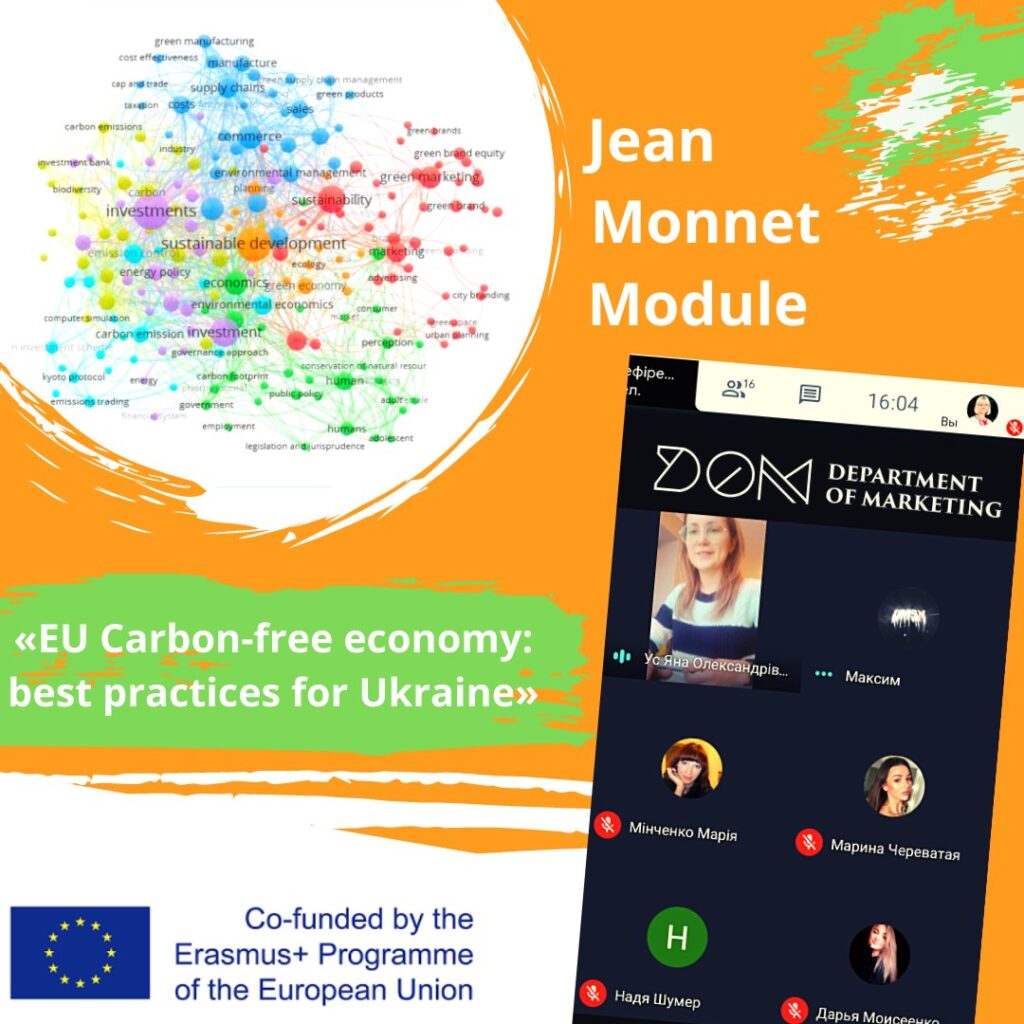Materials and news «EU Carbon-free economy: best practices for Ukraine» (2020 year)
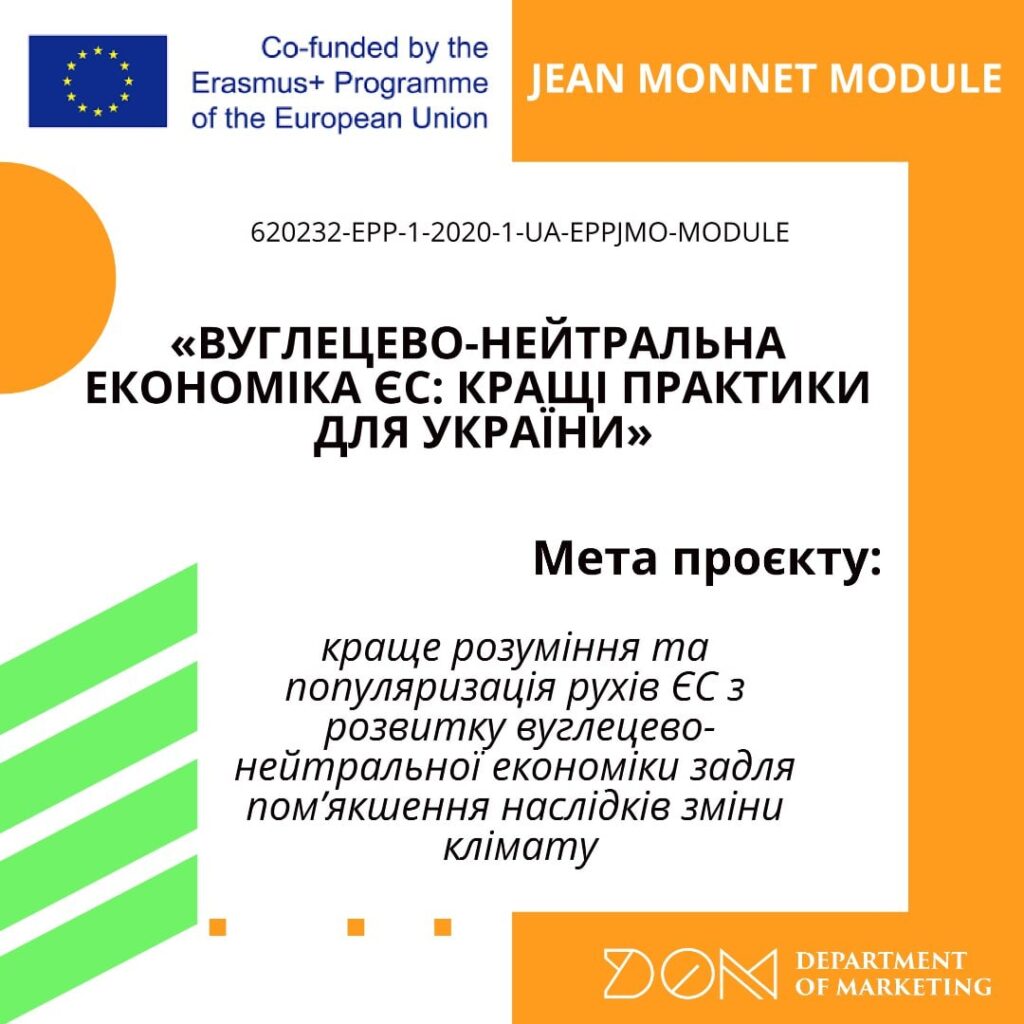
JEAN MONNET MODULE “EU CARBON-FREE ECONOMY: BEST PRACTICES FOR UKRAINE”: START
Early November, the Jean Monnet “EU Carbon-free economy: best practices for Ukraine” has started. The project is financed by the EU commission (620232-EPP-1-2020-1-UA-EPPJMO-MODULE). The Module leader is Olena Chygryn. The goal of the Module is understanding and disseminating the EU movements in developing the Carbon-free economy in order to mitigate the consequences of climate change while boosting energy efficiency and reducing the carbon footprint. The Module consists of the activities as follows as:
- The EU Cohesion policy for Carbon-free economy;
- The introduction into the Carbon-free economy;
- Green energy towards the Carbon-free economy: the best EU practices;
- The EU Green Fiscal policy for Carbon-free economy: the best practices for Ukraine.
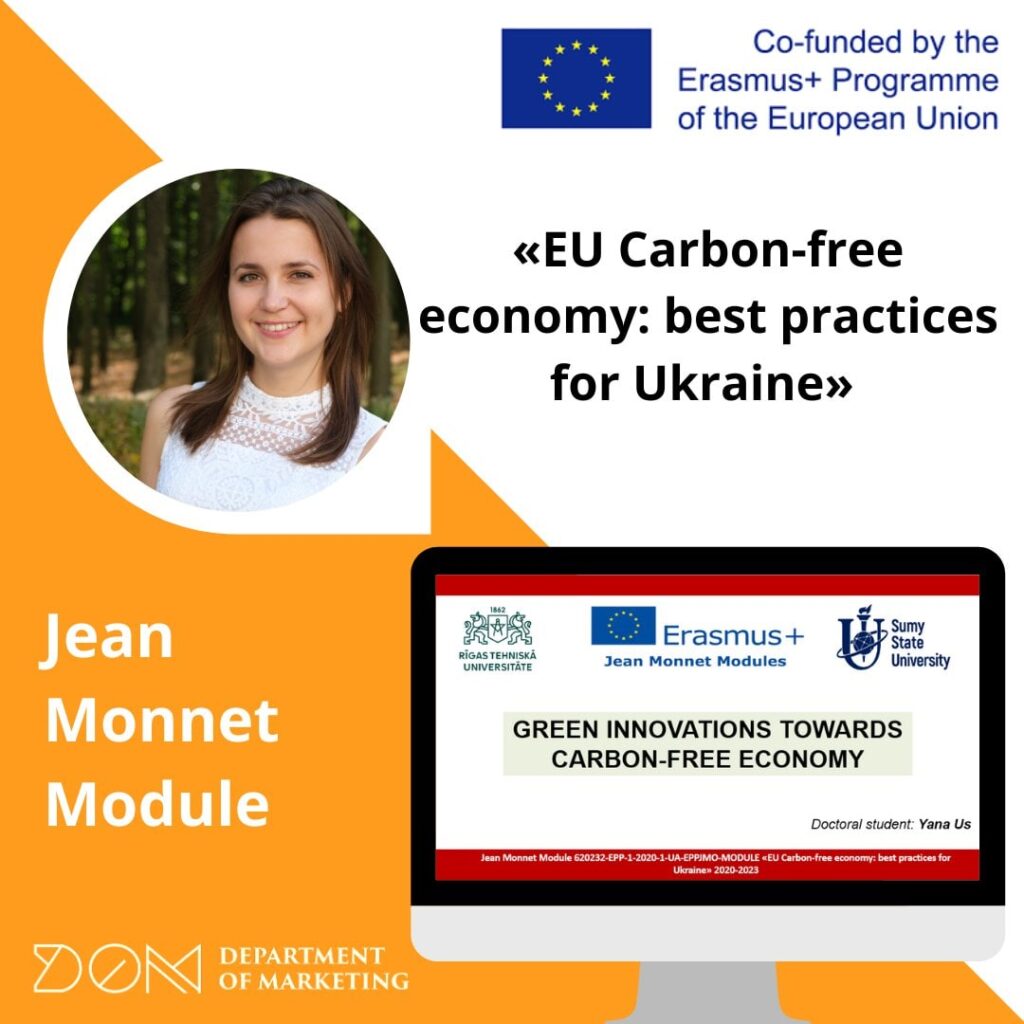
LECTURE-DISCUSSION UNDER THE JEAN MONNET MODULE "EU CARBON-FREE ECONOMY: BEST PRACTICES FOR UKRAINE"
Within the European Commission’s framework funded Jean Monnet Module “EU Carbon-free economy: best practices for Ukraine” (Jean Monnet Module «EU Carbon-free economy: best practices for Ukraine» 620232-EPP-1-2020-1-UA-EPPJMO-MODULE), Yana Us held an introductory lecture on “Green innovation towards a Carbon-free economy” for 15 PhD students of Riga Technical University (November 20, 2020).
The PhD students were acquainted with the main goals and principles of the EU Carbon-free economy. In particular, they analyzed the impact of green technologies on developing the green economy at the national level. During the lecture, the PhD students expressed their opinion on how the EU Green Deal’s implementation would influence the innovative development in Latvia and Ukraine. Besides, particular interest was the discussion on how the EU and Ukraine could synchronize their innovation policies to achieve a Carbon-free economy.
PRACTICAL TRAINING "THE EU ROLE IN DEVELOPING CARBON-FREE ECONOMY" IN THE FRAMEWORK OF THE JEAN MONNET MODULE "EU CARBON-FREE ECONOMY: BEST PRACTICES FOR UKRAINE"
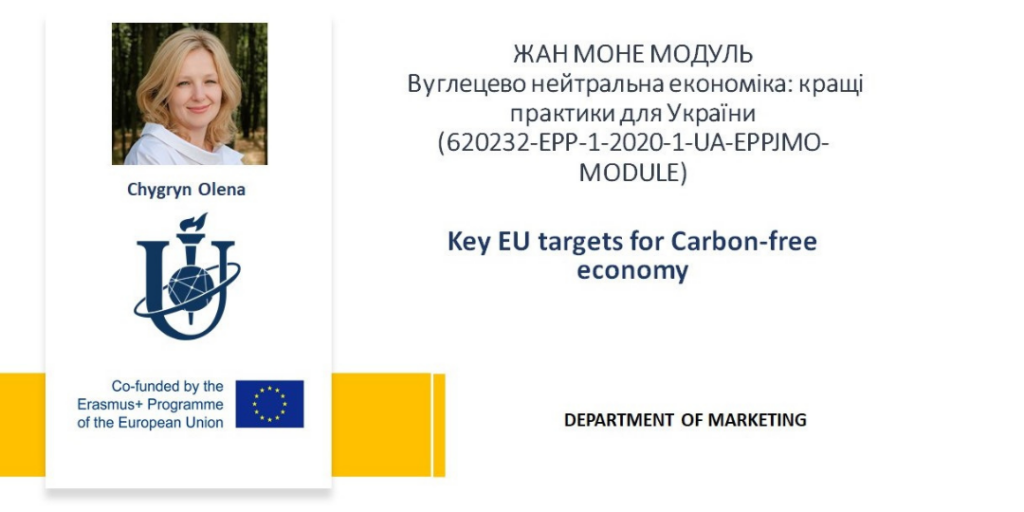
KEY EU TARGETS FOR CARBON-FREE ECONOMY
- decarbonization of energy supply;
- promoting secure mobile communications;
- industrial modernization of the economy;
- increasing the efficiency of energy supply;
- promotion of smart grids.
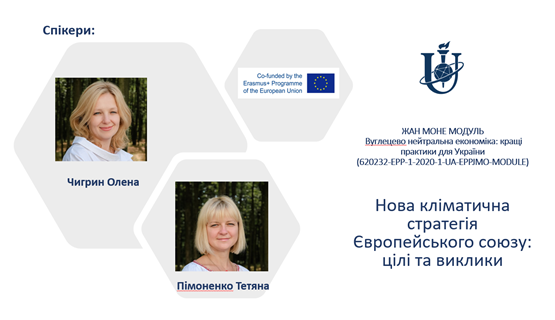
NEW CLIMATE STRATEGY OF THE EUROPEAN UNION
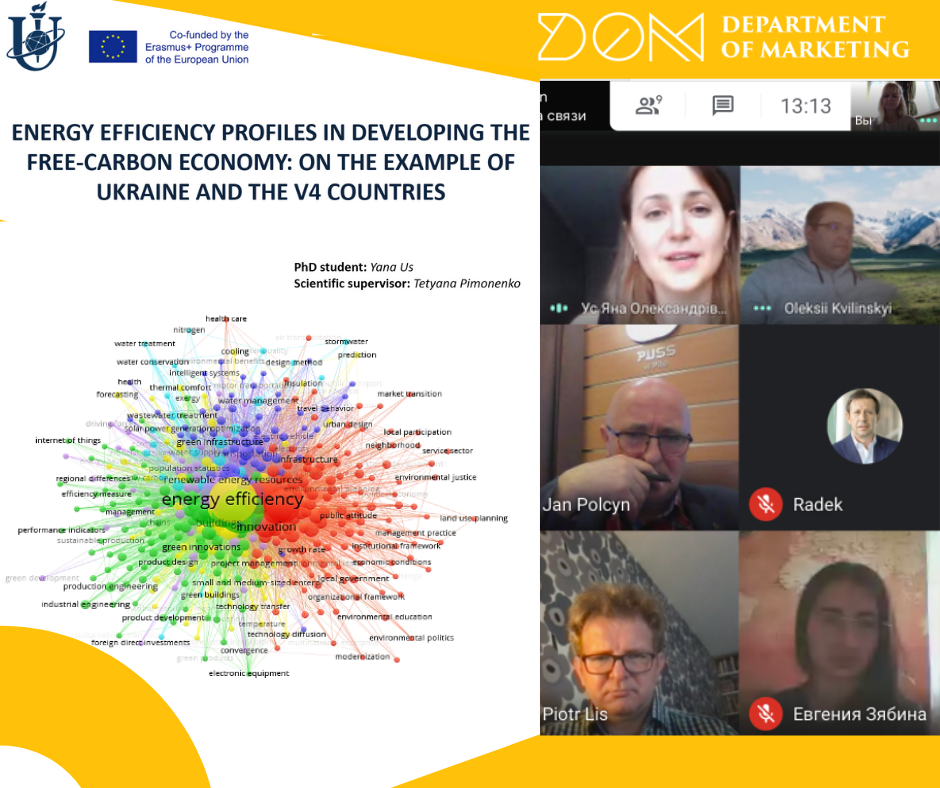
DOUBLE SCIENTIFIC GUIDANCE
Postgraduate students of the Department of Marketing have a unique opportunity to conduct scientific research under the guidance of two scientific supervisors at once
On March 19, 2021, a scientific online seminar was held, which was attended by postgraduate students and their scientific supervisors from Sumy State University and Poland (Jan Polcyn (Stanisław Staszyc Higher State Vocational School in Pila), Radosław Miśkiewicz (Silesian Polytechnic), Piotr Lis (Poznan State University of Economics) and Sebastian (Poznan University of Economics)).
As part of the event, second-year postgraduate student Yana Us presented the first results of a scientific study on the topic “Energy efficiency profiles in developing the free-carbon economy: on the example of Ukraine and the V4 countries”.
Following the results of the meeting, further areas of research were discussed, as well as the possibilities of fruitful cooperation between the Department of Marketing and leading universities in Poland.
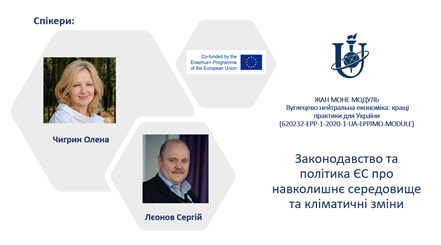
EU ENVIRONMENT AND CLIMATE CHANGE LEGISLATION AND POLICIES
The Department of Marketing is implementing the Jean Monnet project “Carbon-Free Economy: Best Practices for Ukraine” (620232-EPP-1-2020-1-UA-EPPJMO-MODULE). 27 December 2020, Leonov Serhiy and Chygryn Olena conducted an online seminar on “EU Legislation and Policy on Environmental Protection and Climate Change” for 45 students from different specialities. The seminar participants got acquainted with the main components of European legislation, goals and strategies of the European Union in the field of environmental protection and climate change. Particular emphasis was placed on the regulation of production activities, the formation of social responsibility of enterprises, the necessity to disclose information about the results of their environmental activities. Students also discussed how transparency affects companies’ performance.








